Java does not support multiple inheritance through classes but does support multiple inheritance through interfaces. The document discusses inheritance, provides an example of single inheritance in Java, and defines multiple inheritance. It then discusses why Java does not support multiple inheritance through classes due to the "diamond problem". The document explains that Java supports multiple inheritance through interfaces by allowing interfaces to define default methods from Java 8 onwards, providing an example. It also discusses how the "diamond problem" can be resolved while using multiple inheritance through interfaces in Java.
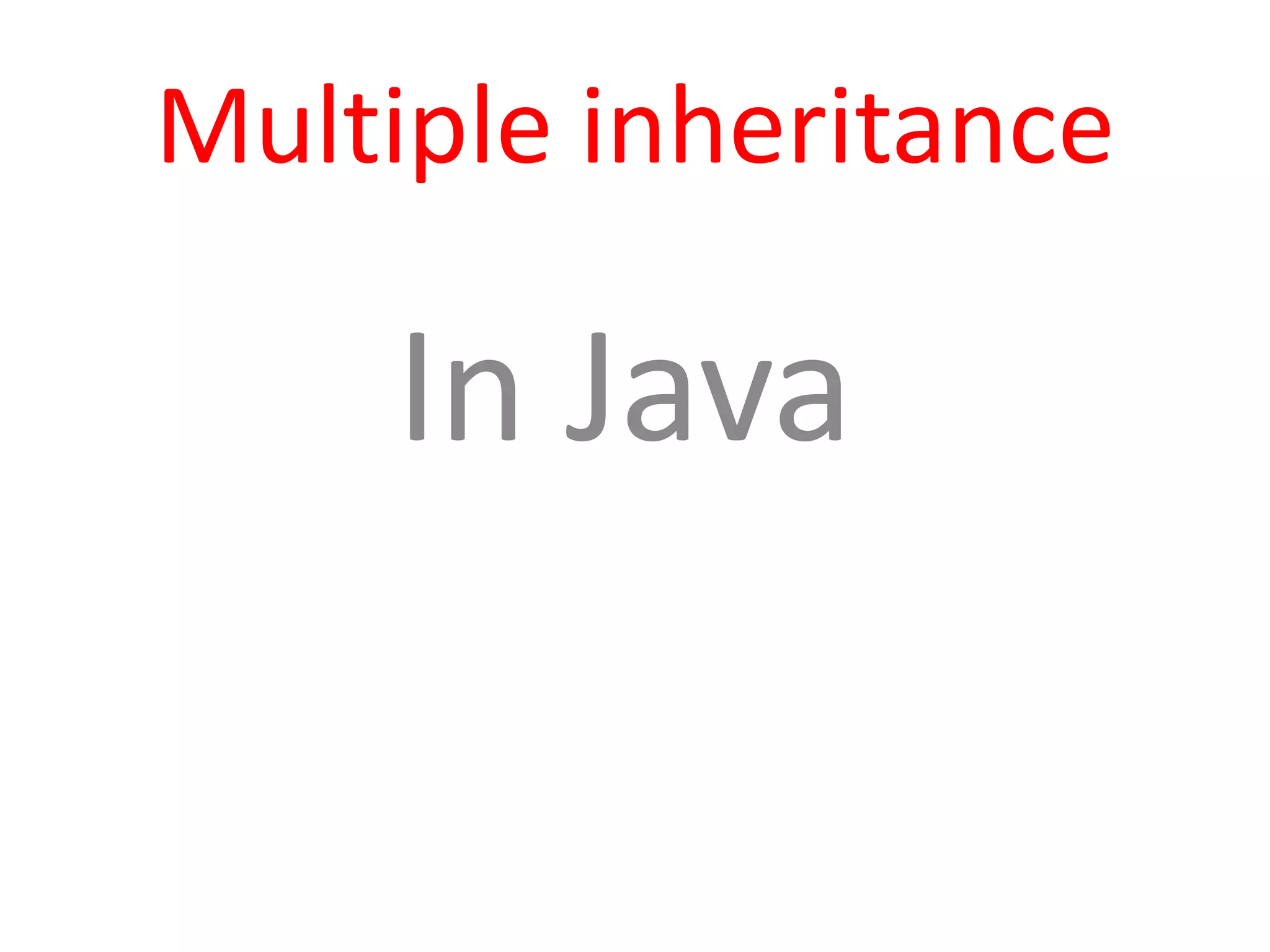
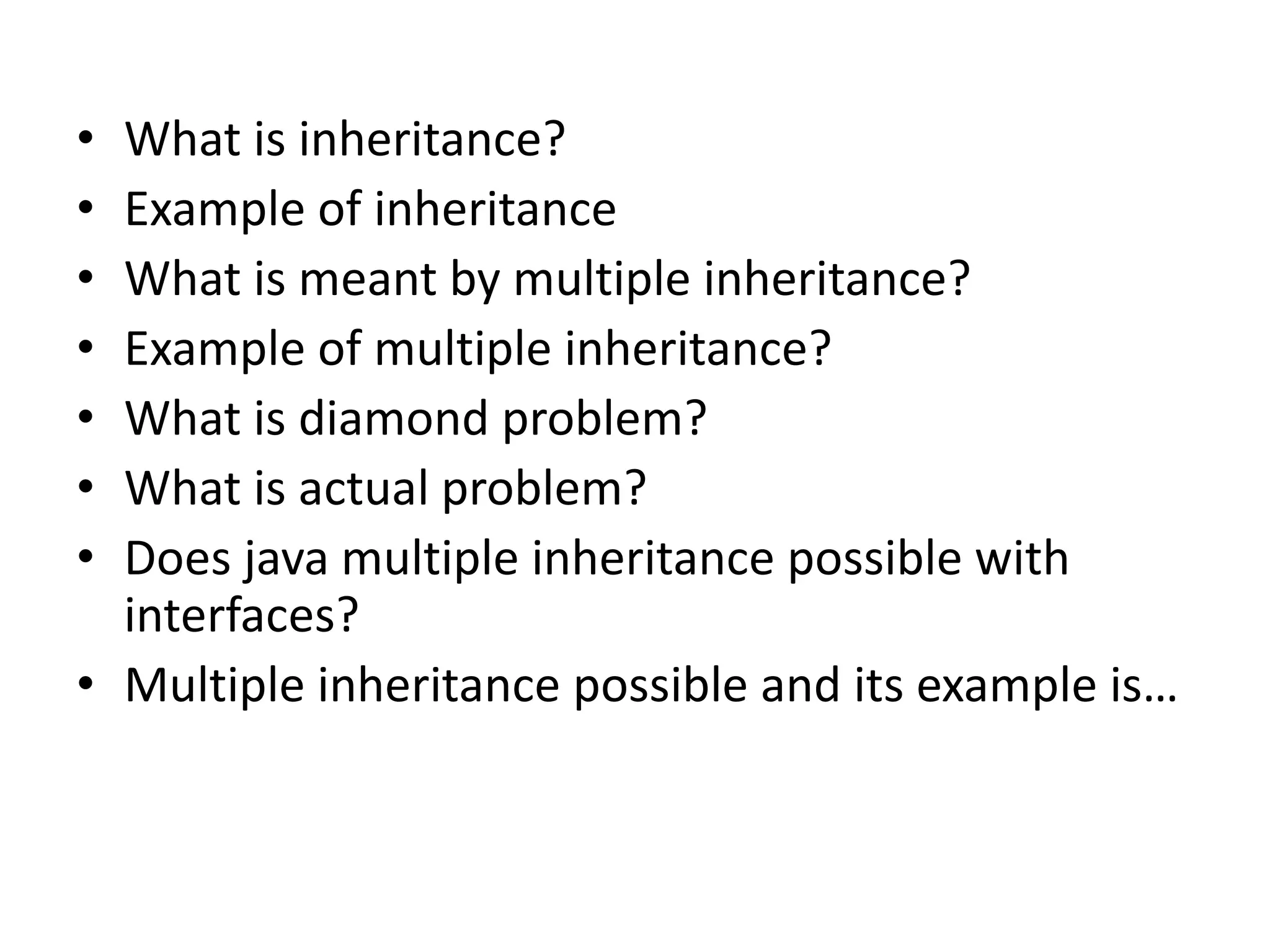
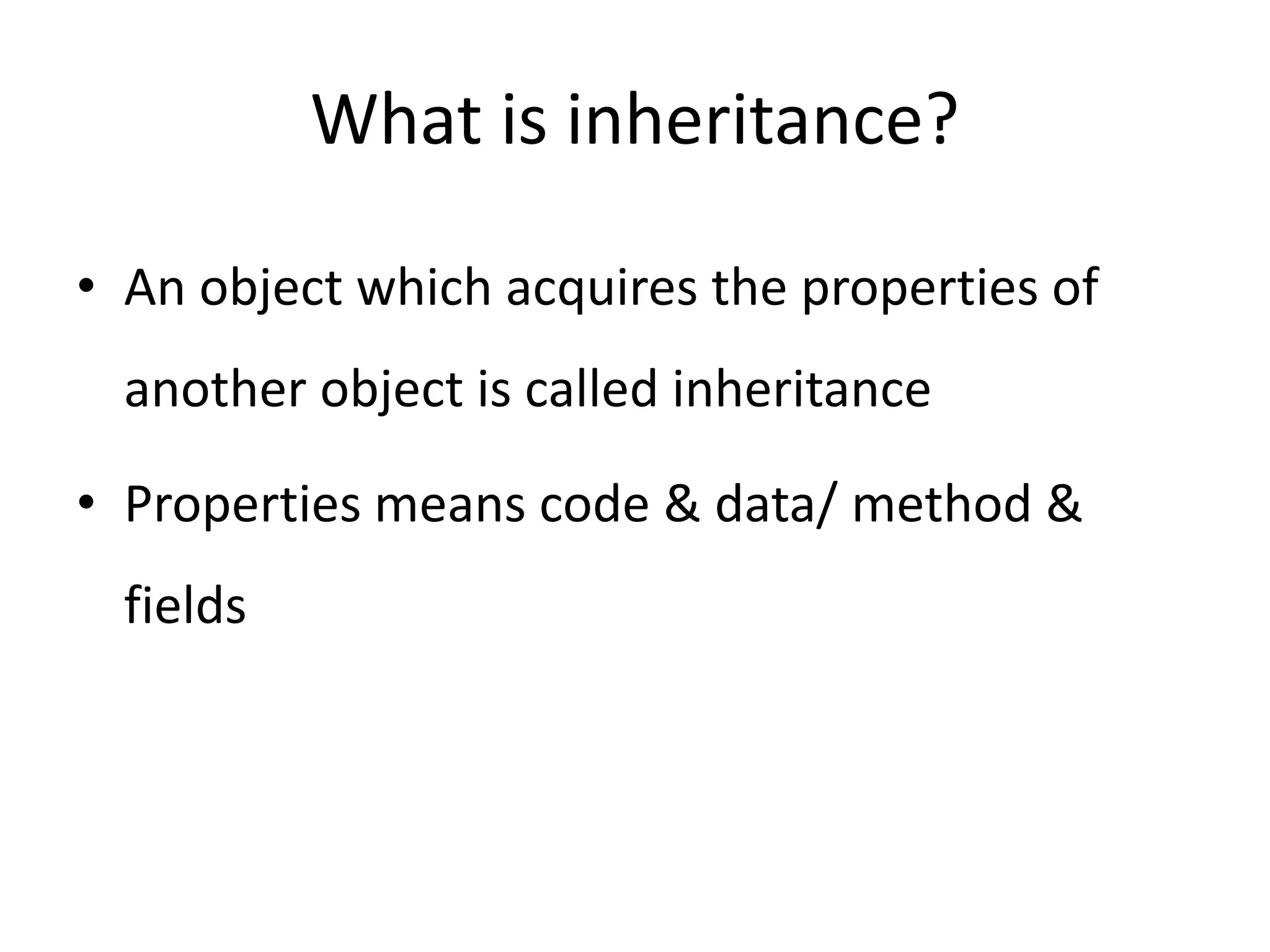
![Simple example of inheritance class First { int i=10; void inherit() { System.out.println("Hello"); } } class Second extends First { void inherit() { System.out.println("World"); } public static void main(String a[]) { Second s=new Second(); s.inherit(); System.out.println(s.i); } } C:Users>javac First.java C:Users>java Second World 10](https://image.slidesharecdn.com/multipleinheritance-160625092754/75/Multiple-inheritance-possible-in-Java-4-2048.jpg)
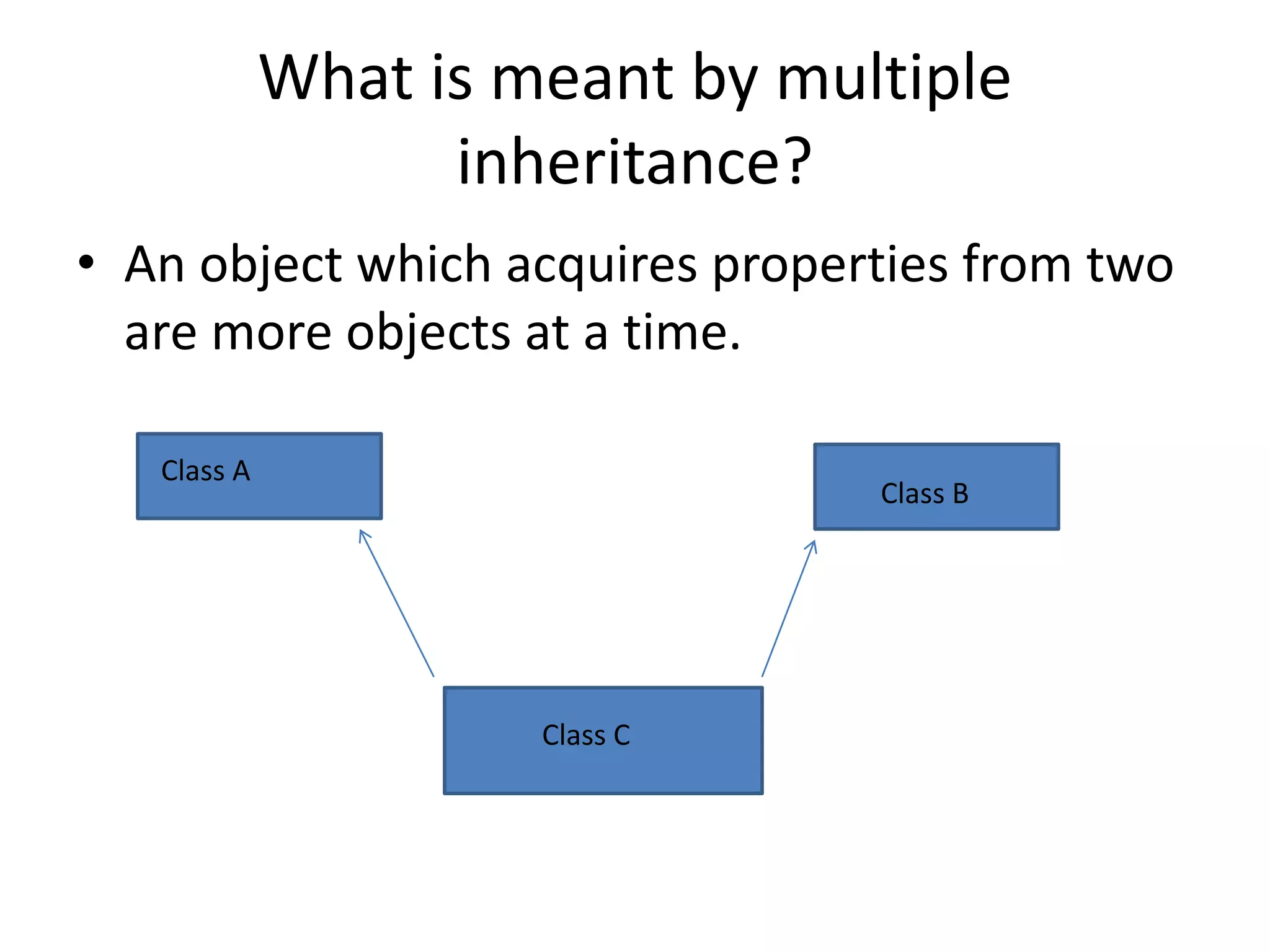
![Example of multiple inheritance? class First { int i=10; void inherit() { System.out.println("Hello"); } } class Second extends First { void inherit() { System.out.println("World"); } } class Third extends First,Second { void inherit() { System.out.println("Does this exists in java?"); } public static void main(String a[]) { Second s=new Second(); s.inherit(); System.out.println(s.i); } } C:Users>javac First.java First.java:16: error: '{' expected class Third extends First,Second ^ 1 error](https://image.slidesharecdn.com/multipleinheritance-160625092754/75/Multiple-inheritance-possible-in-Java-6-2048.jpg)
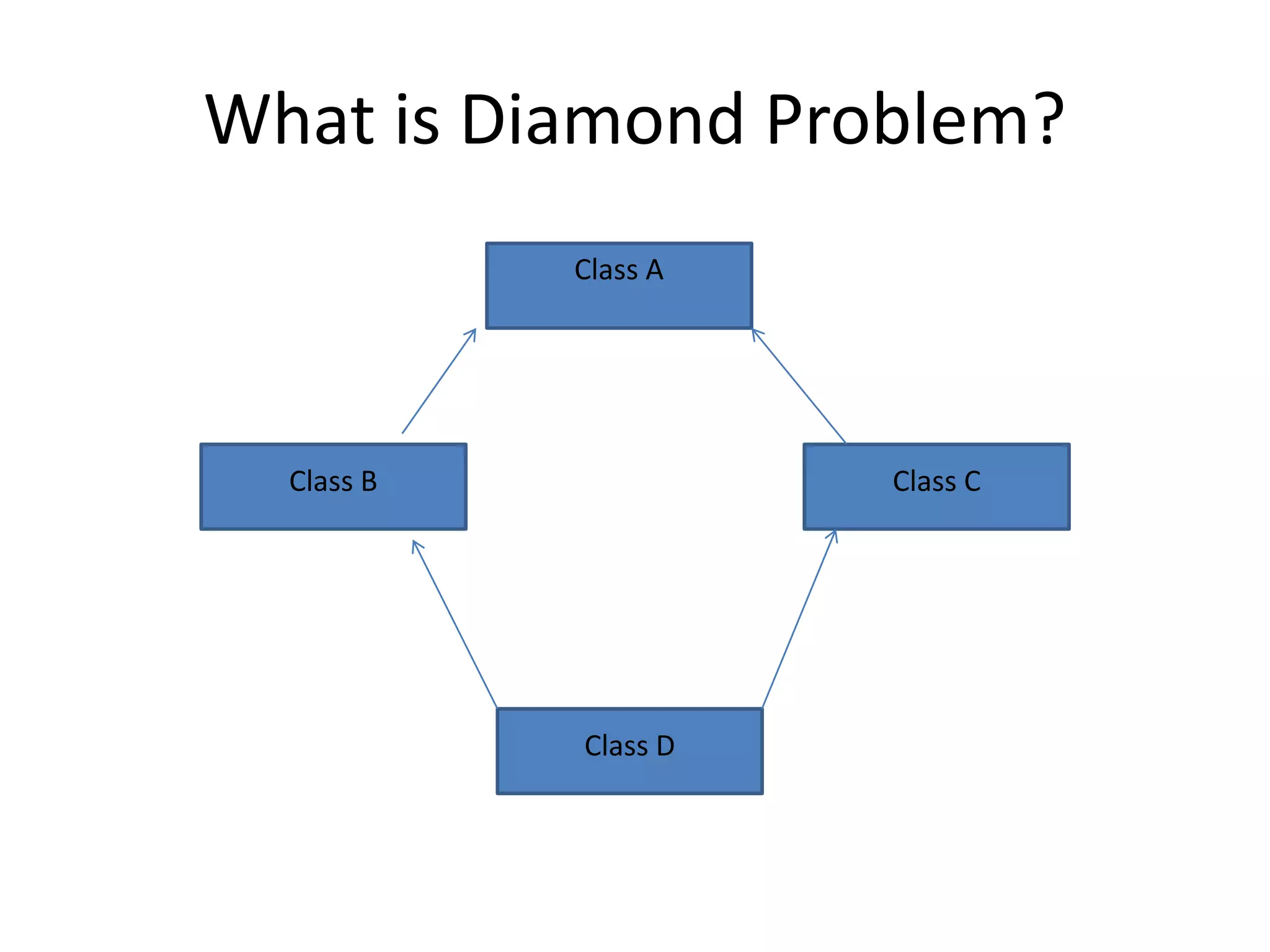
![Example of multiple inheritance? class First { int i=10; void inherit() { System.out.println("Hello"); } } class Second extends First { void inherit() { System.out.println("World"); } } class Third extends First,Second { void inherit() { System.out.println("Does this exists in java?"); } public static void main(String a[]) { Second s=new Second(); s.inherit(); System.out.println(s.i); } } C:Users>javac First.java First.java:16: error: '{' expected class Third extends First,Second ^ 1 error](https://image.slidesharecdn.com/multipleinheritance-160625092754/75/Multiple-inheritance-possible-in-Java-8-2048.jpg)
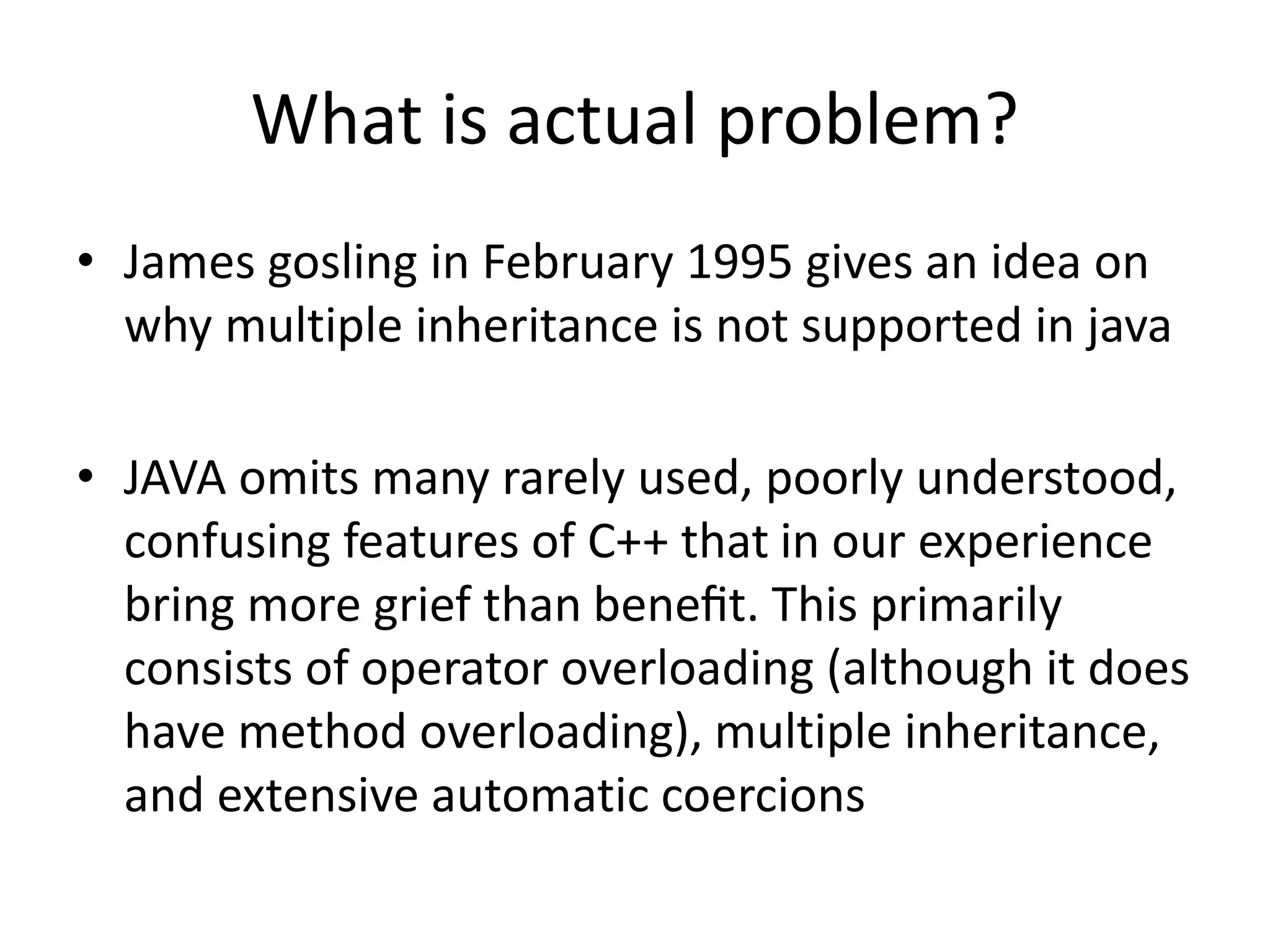
![Multiple inheritance using interfaces interface inter { void dis(); } interface inter1 { void dis1(); } class myclass implements inter, inter1 { public void dis() { System.out.println("First interface method"); } public void dis1() { System.out.println("Second interface method"); } public static void main(String a[]) { myclass m=new myclass(); m.dis(); m.dis1(); } } Does this is the multiple inheritance or not? Yes, it is not an actual multiple inheritance but is just a syntactical multiple inheritance. Because the behaviors cannot be defined inside the methods of the interfaces.](https://image.slidesharecdn.com/multipleinheritance-160625092754/75/Multiple-inheritance-possible-in-Java-10-2048.jpg)
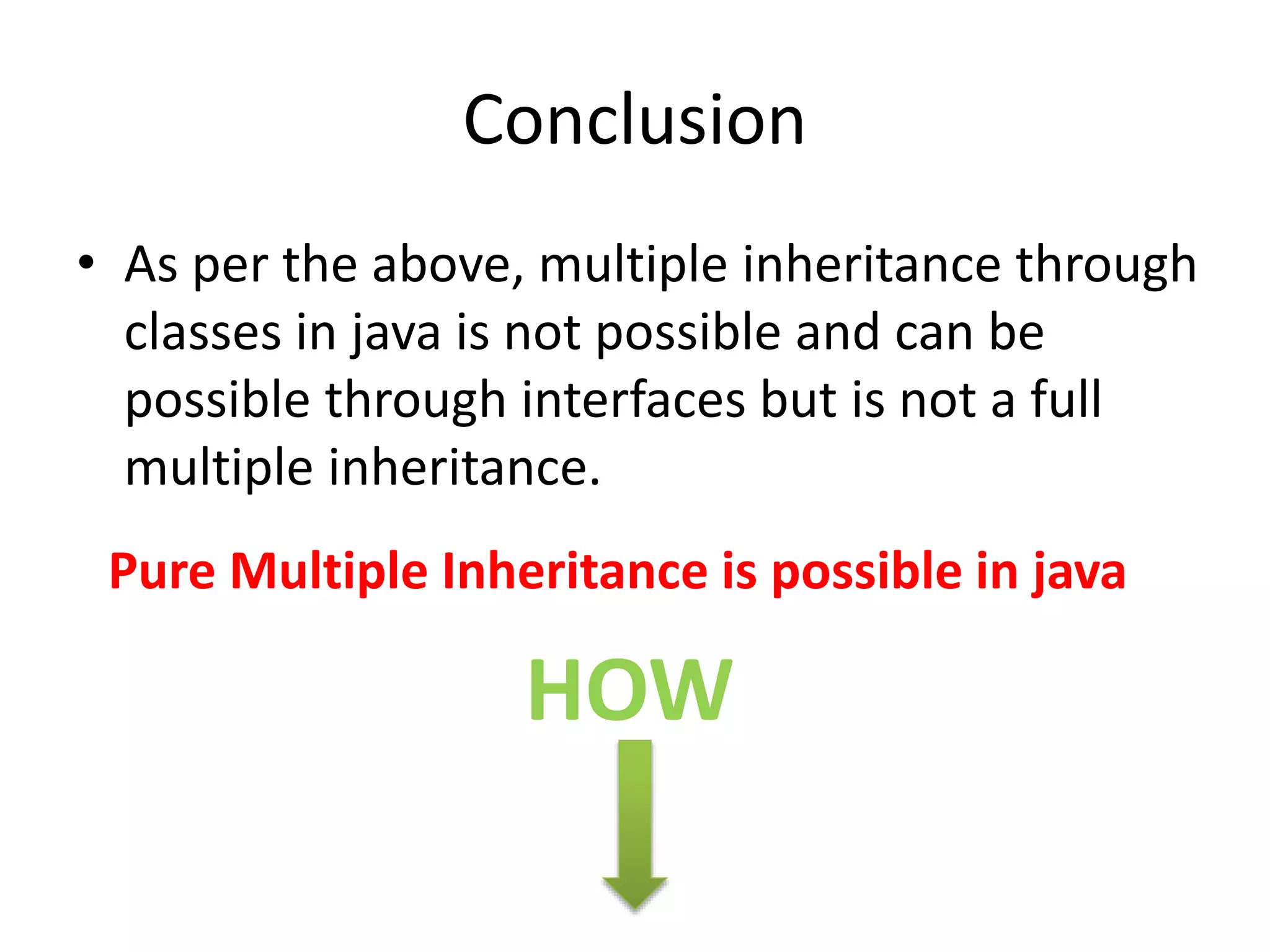

![A class that inherits the behaviors‘ from two parents called multiple inheritance. interface First { default void firstMethod(){ System.out.println(“I am the first default method in first interface"); } } interface Second { default void secondMethod(){ System.out.println(“I am the second default method in second interface"); } } public class Multiple implements First, Second { public static void main(String[] args) { Multiple Obj = new Multiple(); Obj.moveFast(); Obj.crawl(); } }](https://image.slidesharecdn.com/multipleinheritance-160625092754/75/Multiple-inheritance-possible-in-Java-13-2048.jpg)
![What if incase of diamond problem? Interface First { default void same(){ System.out.println(“Same method of first interface"); } } interface Second { default void same(){ System.out.println(“Same method of second interface"); } } public class Third implements First, Second { public static void main(String[] args) { Third obj=new Third(); First.super.run(); //Call First’s same() method //or First.super.run(); //Call Second’s same() method } }](https://image.slidesharecdn.com/multipleinheritance-160625092754/75/Multiple-inheritance-possible-in-Java-14-2048.jpg)